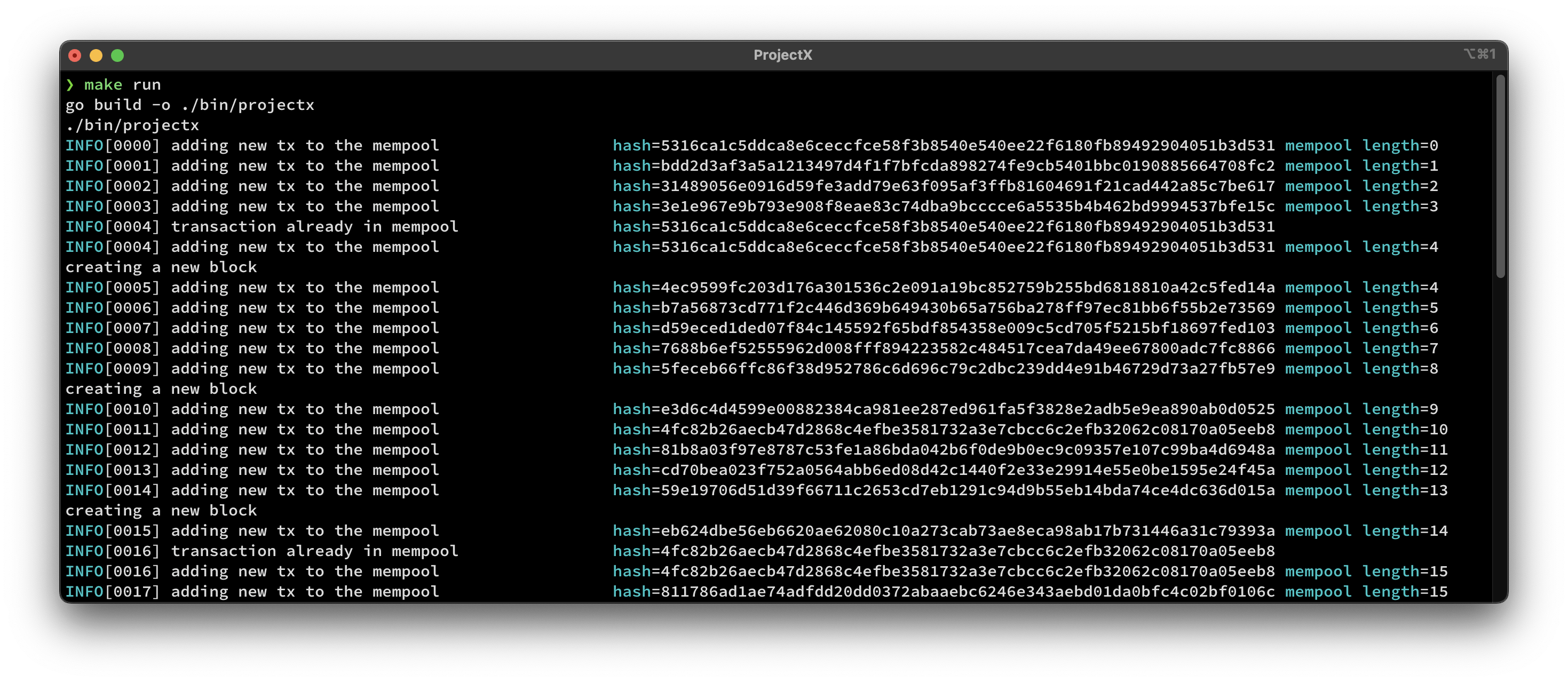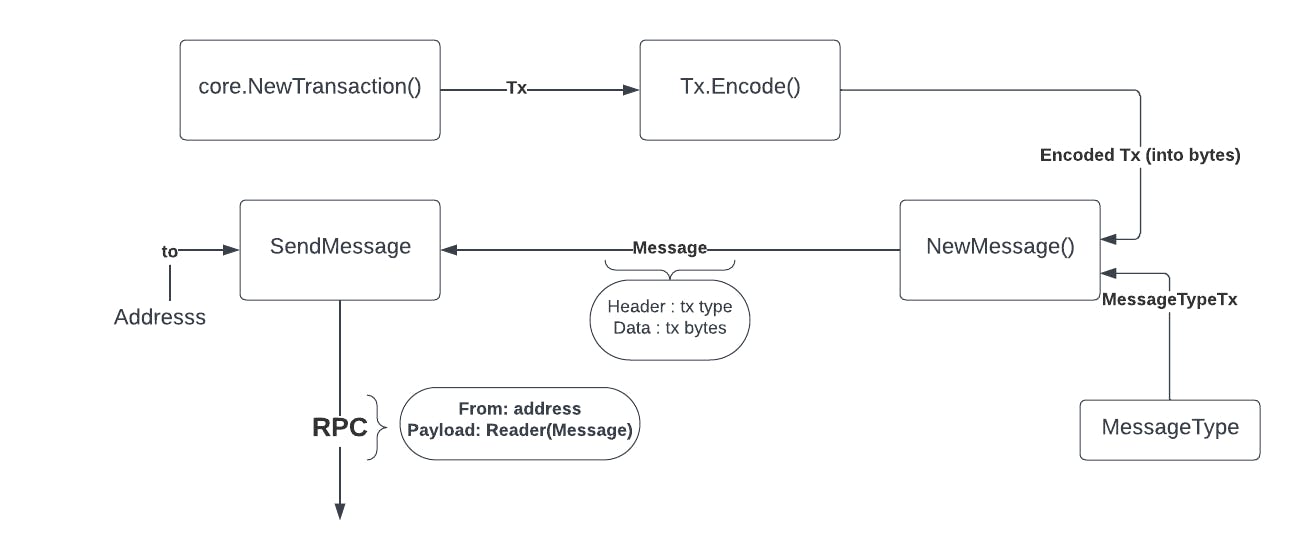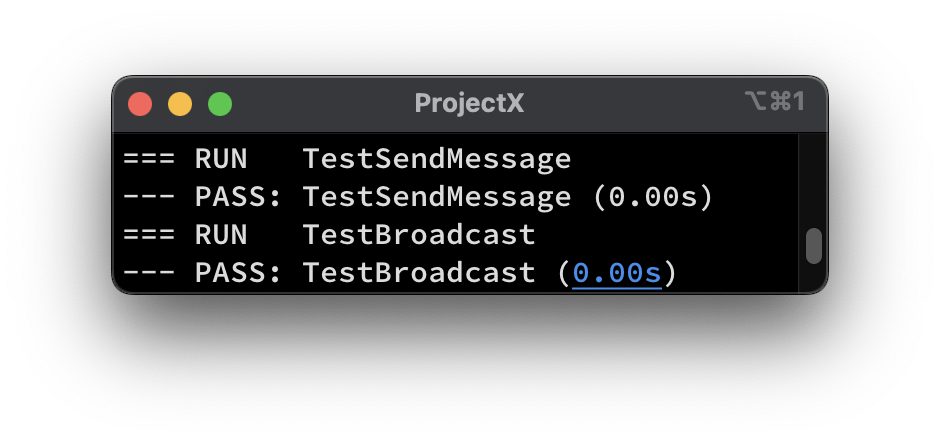Understandings of RPC
RPC stands for Remote Procedure Call, and it is a protocol that allows one program to request a service or function from another program located on a remote server. In the context of blockchain, RPC is commonly used for communication between different components of a blockchain system.
Here are some of the most common types of RPC connections in blockchain and their practical uses with examples:
JSON-RPC:
Use: JSON-RPC is a lightweight RPC protocol that uses JSON (JavaScript Object Notation) as the data format for message serialization. It is commonly used in blockchain networks for communication between nodes and external clients.
Practical Example: Ethereum's JSON-RPC is widely used for interacting with Ethereum nodes. Clients can use JSON-RPC requests to query blockchain data, send transactions, and interact with smart contracts. For instance, a client can use JSON-RPC to request the balance of an Ethereum address.
HTTP-RPC:
Use: HTTP-RPC is a generic term referring to RPC protocols that use HTTP as the transport layer. It is commonly used in blockchain systems where simplicity and compatibility with web technologies are priorities.
Practical Example: Bitcoin's HTTP-RPC, also known as Bitcoin RPC, allows clients to interact with a Bitcoin node using HTTP requests. Clients can submit transactions, query blockchain information, and perform other operations using standard HTTP methods.
WebSocket-RPC:
Use: WebSocket-RPC enables real-time, bidirectional communication between a client and a server over a single, long-lived connection. It is used in blockchain for scenarios requiring continuous updates and notifications.
Practical Example: A blockchain explorer may use WebSocket-RPC to receive real-time updates on new blocks and transactions. This allows the explorer to display the latest blockchain information to users as it happens.
It's important to note that the choice of RPC connection type depends on the specific requirements and design considerations of the blockchain network. Each type has its advantages and may be preferred based on factors such as efficiency, ease of implementation, and compatibility with existing infrastructure.
So, we are creating standards of RPC interface and implement it in this blog...
RPC structure
RPCstruct:- Represents a basic structure for Remote Procedure Call (RPC) containing information about the sender (
From) and the payload (Payload).
- Represents a basic structure for Remote Procedure Call (RPC) containing information about the sender (
MessageTypeenum:- Defines constants for different message types, specifically for transactions (
MessageTypeTx) and blocks (MessageTypeBlock).
- Defines constants for different message types, specifically for transactions (
Messagestruct:- Represents a message with a header indicating its type and data. It is used to create messages with specific types.
NewMessagefunction:- A constructor function for creating a new
Messagewith a given type and data.
- A constructor function for creating a new
Bytesmethod (onMessage):- Converts the
Messageinto a byte slice for sending over the network.
- Converts the
RPCHandlerinterface:- Defines an interface for handling RPC messages, primarily focusing on the
HandleRPCmethod.
- Defines an interface for handling RPC messages, primarily focusing on the
DecodedMessagestruct:- Represents a decoded message with the sender's address (
From) and the actual data (Data).
- Represents a decoded message with the sender's address (
RPCDecodeFunctype:- Represents a function type for decoding an RPC message and returning a
DecodedMessage.
- Represents a function type for decoding an RPC message and returning a
DefaultRPCDecodeFuncfunction:- A default implementation of the
RPCDecodeFunctype, which decodes a message using the gob decoder. It supports decoding transaction messages.
- A default implementation of the
RPCProcessorinterface:- Defines an interface for processing decoded RPC messages, primarily focusing on the
ProcessMessagemethod.
- Defines an interface for processing decoded RPC messages, primarily focusing on the
network/rpc.go
package network
import (
"ProjectX/core"
"bytes"
"encoding/gob"
"fmt"
"io"
"github.com/sirupsen/logrus"
)
type RPC struct {
From NetAddr
Payload io.Reader
}
type MessageType byte
const (
MessageTypeTx MessageType = 0x1
MessageTypeBlock MessageType = 0x2
)
type Message struct {
Header MessageType
Data []byte
}
func NewMessage(t MessageType, data []byte) *Message {
return &Message{Header: t, Data: data}
}
func (msg *Message) Bytes() []byte {
buf := &bytes.Buffer{}
gob.NewEncoder(buf).Encode(msg)
return buf.Bytes()
}
type RPCHandler interface{
HandleRPC(rpc RPC) error
}
type DecodedMessage struct {
From NetAddr
Data any
}
type RPCDecodeFunc func(rpc RPC) (*DecodedMessage, error)
func DefaultRPCDecodeFunc(rpc RPC) (*DecodedMessage, error){
msg := &Message{}
dec := gob.NewDecoder(rpc.Payload)
err := dec.Decode(&msg)
if err != nil {
return nil, fmt.Errorf("failed to decode message from %s: %s", rpc.From, err)
}
logrus.WithFields(logrus.Fields{
"from": rpc.From,
"type": msg.Header,
}).Debug("New incoming message")
switch msg.Header{
case MessageTypeTx:
tx := new(core.Transaction)
if err := tx.Decode(core.NewGobTxDecoder(bytes.NewReader(msg.Data))); err != nil {
return nil,err
}
return &DecodedMessage{
From :rpc.From,
Data : tx,
}, nil
default:
return nil,fmt.Errorf("invalid message header %x", msg.Header)
}
}
type RPCProcessor interface{
ProcessMessage(msg *DecodedMessage) error
}
Summary of Understandings:
The code defines structures and functions related to handling RPC messages in a blockchain network.
RPCstruct encapsulates the sender and payload of an RPC message.MessageTypeenum specifies different types of messages (e.g., transactions or blocks).Messagestruct represents a message with a type header and data payload.RPCHandlerandRPCProcessorinterfaces provide blueprints for handling and processing RPC messages.RPCDecodeFuncis a function type for decoding RPC messages, andDefaultRPCDecodeFuncis a default implementation.The code demonstrates a modular approach to handling and decoding RPC messages, with a focus on supporting transactions in the default implementation.
Now, we use this RPC structure to implement it in server,
ServerOptsstruct:
- Represents options for configuring the
Server, including properties such asRPCDecodeFuncandRPCProcessor.
NewServerfunction:Constructor function for creating a new
Serverinstance with the specified options.Sets default values for
BlockTime,RPCDecodeFunc, andRPCProcessorif not provided.
Startmethod (onServer):Initializes transports and starts the server loop.
Listens for messages on the
rpcChanchannel, decodes and processes RPC messages, and handles other cases.Uses a ticker to trigger certain actions based on the block time.
ProcessMessagemethod (onServer):Implements the
RPCProcessorinterface for processing decoded messages.Switches on the type of the decoded message's data and calls the corresponding processing function (e.g.,
processTransactionfor transactions).
processTransactionmethod (onServer):Processes a transaction by verifying it, checking if it's already in the mempool, setting the first seen timestamp, logging information, broadcasting the transaction, and adding it to the mempool.
Runs concurrently (using
go) to handle these tasks without blocking the main execution.
network/server.go
type ServerOpts struct {
//..other properties
RPCDecodeFunc RPCDecodeFunc
RPCProcessor RPCProcessor
}
func NewServer(opts ServerOpts) *Server {
//other code
if opts.BlockTime == time.Duration(0) {
opts.BlockTime = DefaultBlockTime
}
if opts.RPCDecodeFunc == nil {
opts.RPCDecodeFunc = DefaultRPCDecodeFunc
}
if s.RPCProcessor == nil {
s.RPCProcessor = s
}
return s
}
func (s *Server) Start() {
s.initTransports()
ticker := time.NewTicker(s.BlockTime)
free:
for {
select {
case rpc := <-s.rpcChan:
decodedMessage, err := s.RPCDecodeFunc(rpc)
if err != nil {
logrus.Error(err)
}
if err := s.RPCProcessor.ProcessMessage(decodedMessage); err!=nil {
logrus.Error(err)
}
// other cases
}
fmt.Println("Server shut down")
}
func (s *Server) ProcessMessage (decodedMsg *DecodedMessage) error{
switch t := decodedMsg.Data.(type) {
case *core.Transaction:
return s.processTransaction(t)
}
return nil
}
func (s *Server) processTransaction(tx *core.Transaction) error {
hash := tx.Hash(core.TxHasher{})
if s.memPool.Has(hash) {
logrus.WithFields(
logrus.Fields{
"hash": hash,
}).Info("transaction already in mempool")
}
if err := tx.Verify(); err != nil {
return err
}
tx.SetFirstSeen(time.Now().UnixNano())
logrus.WithFields(logrus.Fields{
"hash": hash,
"mempool length": s.memPool.Len(),
}).Info("adding new tx to the mempool")
go s.broadcastTx(tx)
//add tx to other peers
return s.memPool.Add(tx)
}
Summary of Understandings:
The
ServerOptsstruct contains options for configuring theServer, including functions for decoding RPC messages (RPCDecodeFunc) and processing messages (RPCProcessor).The
NewServerfunction constructs a newServerinstance with default values if certain options are not provided.The
Startmethod initiates server processes, including handling RPC messages, using a ticker for periodic tasks.The
ProcessMessagemethod implements theRPCProcessorinterface, dispatching specific processing tasks based on the type of the decoded message.The
processTransactionmethod handles the processing of transactions, including verification, mempool checks, timestamp setting, logging, broadcasting, and mempool addition.
We did broadcastTx but we have not implement it, we'll do it next. But as of now we are checking our functionality without broadcasting it.
Testing
We are sending transaction as RPC message,
The sendTransaction function generates a new random transaction, signs it with a freshly generated private key, encodes the transaction using the gob encoder, and then sends the encoded transaction as a message to a specified network address using a given transport (network.Transport). The function is designed to simulate sending transactions over a network in a blockchain system.
network/main.go
package main
import (
"ProjectX/core"
"ProjectX/crypto"
"ProjectX/network"
"bytes"
"math/rand"
"strconv"
"time"
"github.com/sirupsen/logrus"
)
func main() {
trLocal := network.NewLocalTransport("LOCAL")
trRemote := network.NewLocalTransport("REMOTE")
trLocal.Connect(trRemote)
trRemote.Connect(trLocal)
go func() {
for {
if err := sendTransaction(trRemote, trLocal.Addr()); err != nil {
logrus.Error(err)
}
time.Sleep(1 * time.Second)
}
}()
Pk := crypto.GeneratePrivateKey()
opts := network.ServerOpts{
Transports: []network.Transport{trLocal},
PrivateKey : &Pk,
}
s := network.NewServer(opts)
s.Start()
}
func sendTransaction(tr network.Transport, to network.NetAddr) error {
Pk := crypto.GeneratePrivateKey()
tx := core.NewTransaction([]byte(strconv.FormatInt(int64(rand.Intn(100)),10)))
tx.Sign(Pk)
txBytes := &bytes.Buffer{}
err := tx.Encode(core.NewGobTxEncoder(txBytes))
if err != nil {
return err
}
msg := network.NewMessage(network.MessageTypeTx, txBytes.Bytes())
return tr.SendMessage(to, msg.Bytes())
}
let's run,
make run

Running fine!
Here's how it's happening..!!

This chart gives clear representation that how it's working in big picture.
Broadcast Transaction
Broadcasting transaction is one of the important responsibility of server. Generally, when server receives Transaction, It verifies it and broadcast it to it's peers. We are going to broadcast anything in bytes to make it more modular that even if we have to broadcast anything other than message or transaction in future, we can do it by just encoding it and passing it to broadcast method.
Let's implement it.
As it is responsibility of transport layer to broadcast message, We added Broadcast([]byte) error function which means Every transport have to have broadcast feature.
network/transport.go
type Transport interface {
// other
Broadcast([]byte) error
}
We added Broadcast method definition for broadcast bytes.
network/local_transport.go
func (t *LocalTransport) Broadcast(payload []byte) error {
for _, p := range t.peers{
err := t.SendMessage(p.Addr(), payload)
if err != nil {
return err
}
}
return nil
}
Testing
Setup:
Creates three instances of a local transport (
tra,trb,trc), each identified by a unique label ("A," "B," "C").Connects transport
trato transportstrbandtrc.
Broadcast:
- Calls the
Broadcastmethod on transporttra, simulating the broadcast of a message (in this case, the message is a byte slice with the content "hello world").
- Calls the
Verification:
Listens for incoming messages on transports
trbandtrcusing theConsumemethod.Verifies that both
trbandtrcreceive the same message that was broadcasted bytra.Compares the received message content with the expected "hello world."
Assertions:
- checking for a successful connection between transports, successful broadcast, and the correctness of the received messages
network/local_transport_test.go
func TestBroadcast(t *testing.T) {
tra := NewLocalTransport("A").(*LocalTransport)
trb := NewLocalTransport("B").(*LocalTransport)
trc := NewLocalTransport("C").(*LocalTransport)
assert.Nil(t, tra.Connect(trb))
assert.Nil(t, tra.Connect(trc))
message := []byte("hello world")
assert.Nil(t, tra.Broadcast(message))
rpcb := <-trb.Consume()
b, err := io.ReadAll(rpcb.Payload)
assert.Nil(t, err)
assert.Equal(t, b, message)
rpcc := <-trc.Consume()
b, err = io.ReadAll(rpcc.Payload)
assert.Nil(t, err)
assert.Equal(t, b, message)
}
make test

YEAH, IT'S WORKING!!
The following blog post will explore the code related to Block creation
In this blog series, I'll be sharing code snippets related to blockchain architecture. While the code will be available on my GitHub, I want to highlight that the entire architecture isn't solely my own. I'm learning as I go, drawing inspiration and knowledge from various sources, including a helpful YouTube playlist that has contributed to my learning process.
